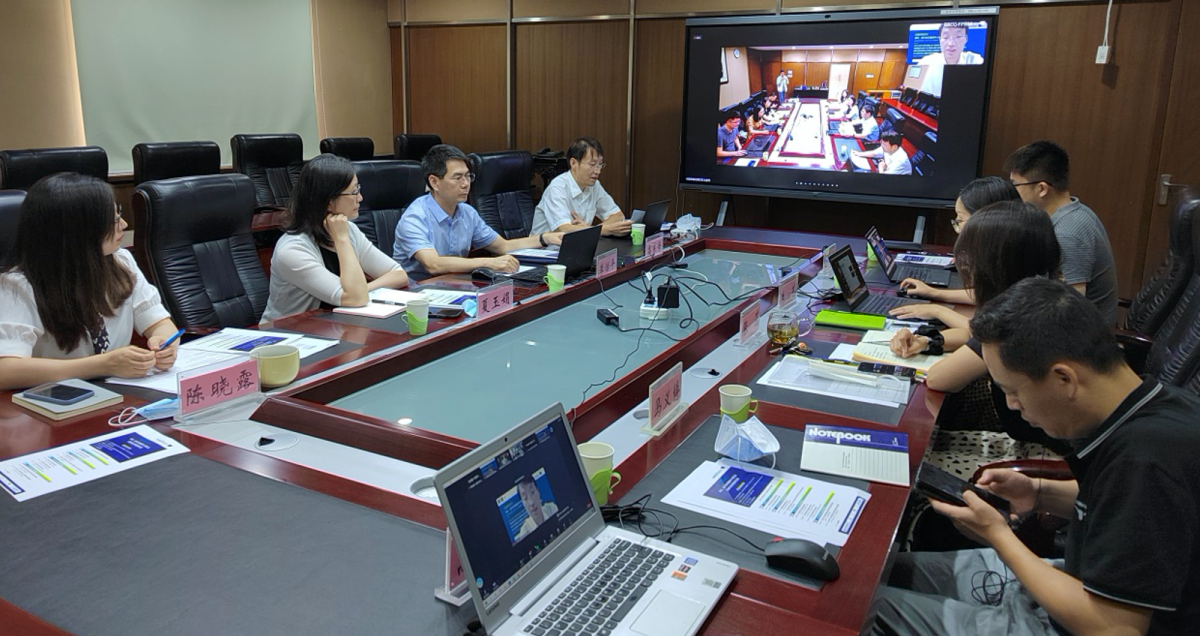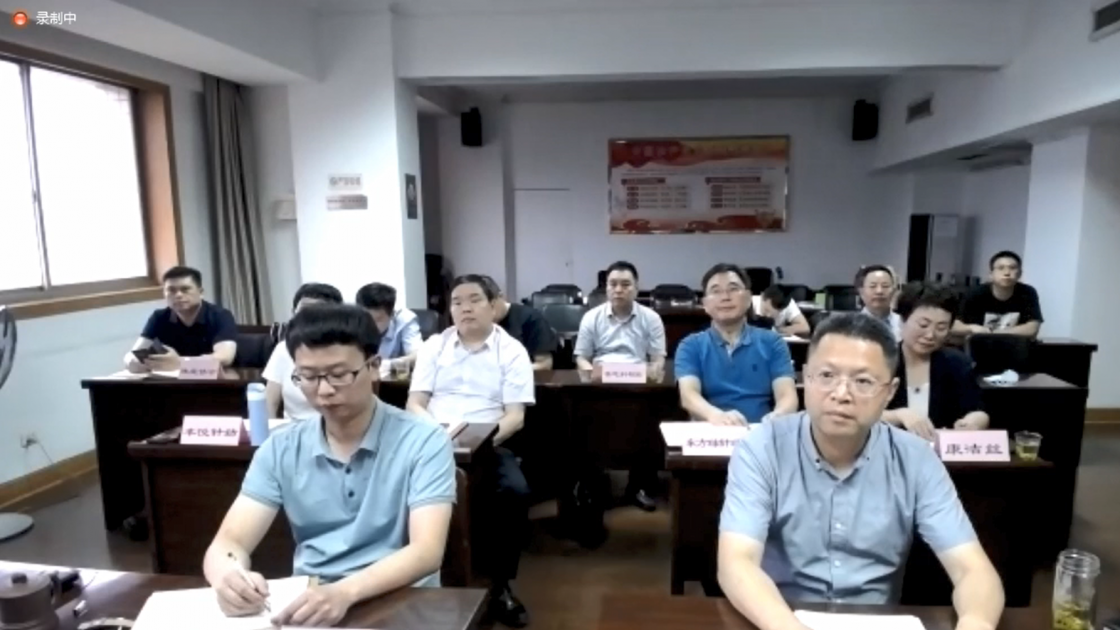
With the largest number of textile and apparel MSMEs being active players in international trade, China is the world’s largest producer and exporter of textiles and apparel. The country’s textile industry has already made some efforts on transitioning towards a circular economy; however, Chinese textile and apparel MSMEs are facing numerous challenges, including higher energy consumption, higher water consumption, and lower recycling rate of waste textiles.
On 28 June 2022, the EU funded SWITCH-Asia Project Transitions to circular economy practices in textile and apparel MSMEs along the lifecycle in Huzhou and Shaoxing was successfully launched during a meeting jointly organised by its implementing partners: the China National Institute of Standardization (CNIS), the China Textile Development Center (CTDC), ICLEI - Local Governments for Sustainability (ICLEI), and Agencia de Residus de Catalunya–MedWaves, the UNEP/MAP Regional Activity Centre for SCP (ARC-MedWaves).
From 2022-2025, this project will be on a mission to promote improved sustainable management, resource efficiency and adoption of circular economy principles by the local textile and fashion industry in the cities of Huzhou and Shaoxing, facilitating China’s textile and fashion industry’s transition towards a circular economy by 2025.


More than 100 participants joined the event (both online and offline), including representatives of the European Union Delegation to China, Huzhou and Shaoxing municipal government departments, research institutes, industry associations, financial institutions, and textile and apparel enterprises.
Mr. Pierre-Yves Lucas, Team Leader, Cooperation Sector of the Delegation of the European Union to China, and Mr. Li Zhiping, Vice President of the CNIS, delivered their opening remarks. The meeting was chaired by Mr. Gao Dongfeng, Team Leader of the Circular Economy Sector, Branch of Resource and Environment of the CNIS.
In addition to introducing the latest policy developments on the EU Circular Economy Action Plan and the EU Strategy for Sustainable and Circular Textiles, Mr. Pierre-Yves Lucas expressed the importance of integrating this project with China’s Plan for Circular Economy Development, one that aims to improve the overall resource utilization capacity, build a resource recycling industrial system, and develop the circular economy by 2025.
I hope this new SWITCH-Asia action on textile and circular economy will be able to support China’s environment and climate change agenda, but most importantly address effectively our common challenges at a global level, he said.
Subsequently, Mr. Li Zhiping, acknowledged the importance of enhancing strong cooperation and knowledge exchanges between China and Europe in the area of the circular economy. He reinforced the commitment of the CNIS to effectively manage and implement this project under the guidance and support of the EU Delegation, industry experts and representatives, partners, and ensuring the active participation of local governments and enterprises.
Ms. Feng Mei, Project Manager of Cooperation Sector, Delegation of the European Union to China, introduced the SWITCH-Asia programme to stakeholders, while Dr. Ding Shuang from the CNIS, presented the overall implementation plan of the Project.
Mr. Sunandan Tiwari, Director of Global Implementation at ICLEI subsequently introduced the ICLEI’s Circular Development Pathways and the role ICLEI will play within this project.
Mr. Giorgio Mosangini, Head of Green Entrepreneurship & Civil Society at ARC-MedWaves introduced eco-design and circular economy business strategies and how business can lead the way to sustainable fashion. He also presented the activities on capacity building, technical assistance and innovation that will be implemented in the coming months.
Hu Kehua, Deputy Director of the Office for Social Responsibility of China National Textile and Apparel Council (CNTAC) provided an overall introduction on the status of the circular economy in the chinese textile and apparel industry and shared latest research findings from 2019-2020. He also presented the implementation plan of the activities that will be conducted in the coming months.
Chen Wenjin, Deputy Mayor of Zhuji City, Zhejiang Province presented the circular development of hosiery enterprises in Zhuji City, while Huang Jiawei, Division Head of Huzhou Municipal Administration for Market Regulation, presented the status of circular development of micro-, small and medium-sized enterprises (MSMEs) in Huzhou.
In conclusion, there was a general consensus among stakeholders that the implementation of this SWITCH-Asia Project targeting textile and apparel MSMEs will play a positive role in achieving the targets set in several government plans on the circular economy, maximizing the use and efficiency of resources and the lifecycle of products through sustainable consumption and production practices.


